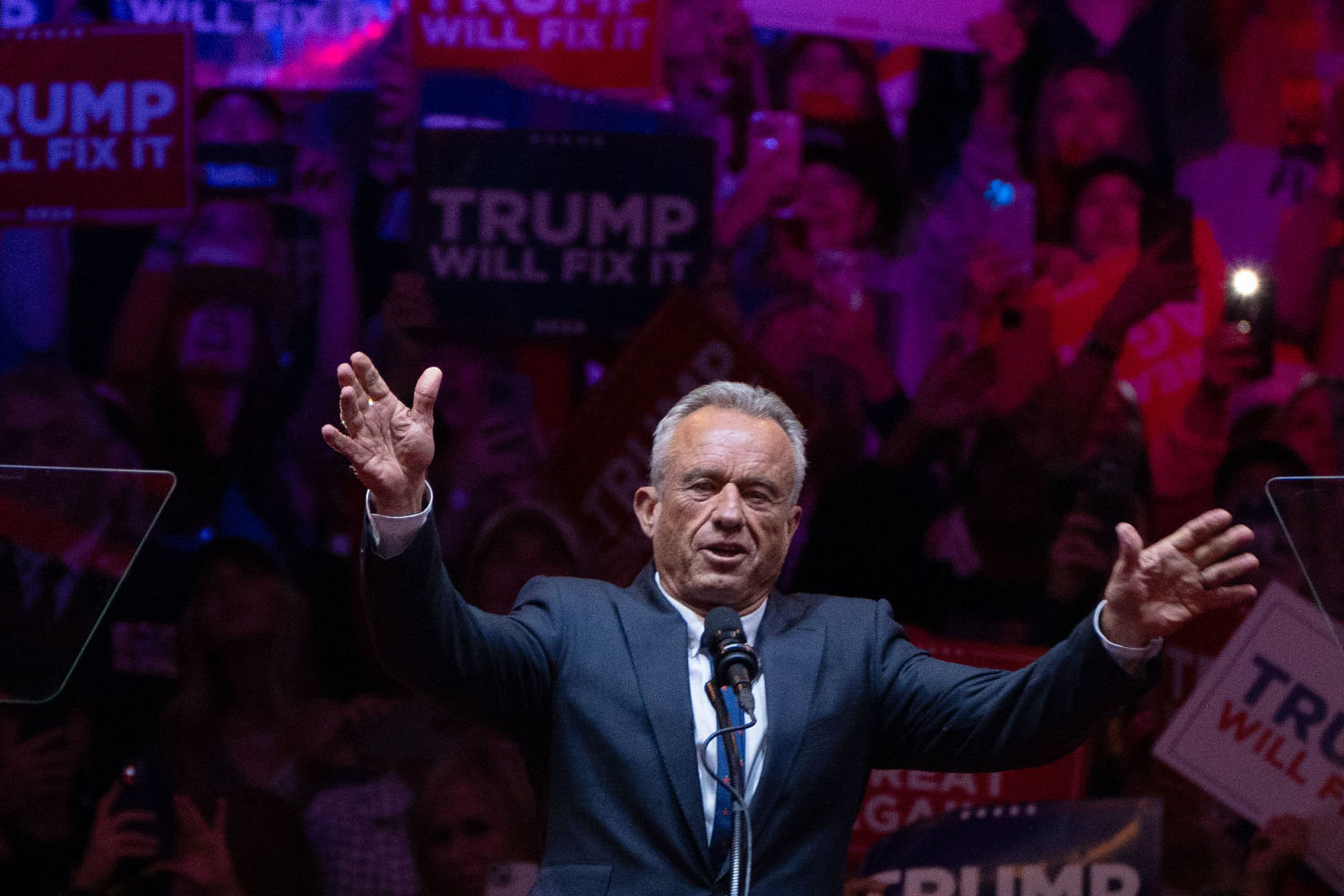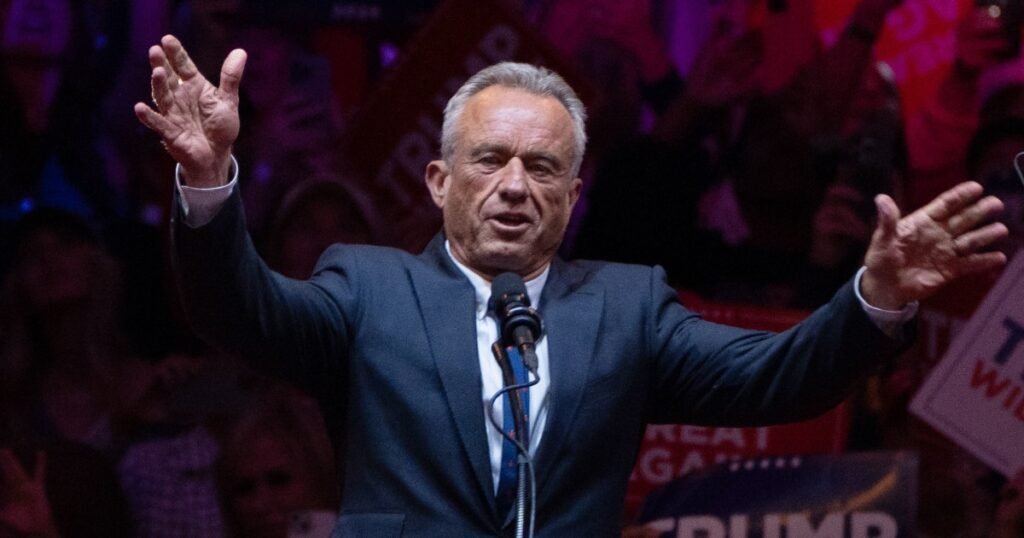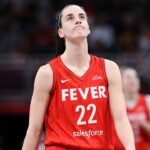RFK Jr.’s No. 1 hurdle to take on unhealthy food: money

Robert F. Kennedy Jr. has pledged to transform America’s food system, vowing to crack down on foods and ingredients he blames for many of the nation’s ills, including ultra-processed foods and food additives.
President-elect Donald Trump has picked Kennedy to be his nominee for secretary of health and human services; if he is confirmed, he would manage a sprawling department that includes 13 agencies that play major roles in Americans’ health. Among those agencies is the Food and Drug Administration.
Kennedy holds a number of controversial views when it comes to public health, including anti-vaccine activism. However, experts generally agree that his stances on food and nutrition are commendable.
Still, he’s likely to face a major hurdle: money.
The FDA’s food division, poised to play a significant role in Kennedy’s ambitions, operates on a tight budget. Unlike the agency’s drug division, which sustains itself largely through user fees charged to pharmaceutical companies when they apply for drug approval, its food division relies more heavily on funding from Congress, said Jerold Mande, a former FDA senior adviser and former deputy undersecretary for food safety at the Department of Agriculture. (Separately, Kennedy has suggested he wants to end user fees, arguing the system creates a conflict of interest.)
Historically, Mande said, Congress has been reluctant to provide money to the agency’s food and nutrition program.
“The FDA’s food program has a billion-dollar budget, and only $25 million of that goes to food nutrition and chronic disease,” said Mande, now an adjunct professor at Harvard University and the CEO of Nourish Science, a food advocacy group. “So there’s almost no money for it, and that is the No. 1 barrier: they don’t have the budget or staff to do anything.”
By comparison, the food industry spends almost $14 billion a year on advertising, the majority of which promotes fast food, sugary drinks, candy and other unhealthy snacks, said Elisabetta Politi, nutrition director of the Duke Diet and Fitness Center in Durham, North Carolina.
The industry, she said, likely spends millions more on lobbying Congress.
“I think that is a striking comparison of how hard it is for consumers to make healthy choices, when the food industry is so powerful,” Politi said.
Kennedy’s ideas about food are “great,” she said, but “how you do that, I’m not so sure.”
Difficult but not impossible
Marion Nestle, professor emerita of nutrition, food studies and public health at New York University, said that even with limited funds, it’s not impossible to take on the food industry, noting Kennedy isn’t the only public figure who’s tackled unhealthy foods.
Former first lady Michelle Obama, an advocate for healthy eating, started the Let’s Move! campaign, which focused on combating childhood obesity, including through healthy eating. She also championed the Healthy, Hunger-Free Kids Act of 2010, which set new nutrition standards for school lunches, including more fruits and vegetables.
Sen. Bernie Sanders, I-Vt, has called on more thorough reviews on food coming from abroad and recently compared the processed food industry to the tobacco industry.
Mande said the current FDA commissioner, Robert Califf, has made food a priority during his second tenure. Califf led the restructuring of the FDA’s food division in the wake of the 2022 infant formula shortage crisis, which arose after a facility was shut down due to bacterial contamination that the agency said might’ve been linked to two infant deaths.
Still, it’s apparent that the division moves slowly. Mande said Califf has likely wanted to do more but he’s not been able to “move through the bureaucracy to move on that” or get the needed resources.
“I mean, everything RFK has been saying on chronic disease and our food and the need to do something about that, Califf has been saying that too throughout his tenure,” Mande said.
In July, the FDA finally banned brominated vegetable oil, a food additive primarily used in fruit-flavored sports drinks and sodas that carries potential health risks, including damage to the liver, heart and brain. That ban, however, was only proposed last year, several decades after the agency concluded that its use in foods wasn’t safe.
The agency is also expected to propose new front-of-package nutrition labels in the coming weeks and is working on an update to the definition of “healthy,” although it’s unclear if they’ll be able to get that done before the new administration comes in. The FDA is also reassessing the potential cancer risk of red dye No. 3, a synthetic food coloring that’s already banned in California and Europe.
In a statement, an FDA spokesperson said the agency “intends to make a determination on Red Dye No. 3 soon.”
Other additives that the U.S. allows but are banned in many European countries include yellow dyes No. 5 and No. 6, and potassium bromate and azodicarbonamide, both used in flour to make bread.
In need of allies
Of course, a lot of what Kennedy will be able to accomplish will depend on how he decides to shake up the public health agencies, including the FDA, Nestle said. Kennedy has threatened to eliminate “entire departments” at the agency, including the nutrition department. He’ll need people with knowledge of how to move food policy forward.
Mande said Kennedy will likely need allies in the administration to accomplish his goals, particularly at the FDA and the Department of Agriculture, who can push Congress to do more. Trump hasn’t yet announced the people he wants to fill those roles.
To some degree, Kennedy may also have to work with the food industry, Politi said. Nestle agreed, noting that the industry has remained mostly silent amid Trump’s transition to the White House.
“They’ve been very, very quiet and I don’t hear the cereal companies making huge statements about the artificial colors, that there’s no evidence that they’re harmful,” Nestle said. “I don’t hear the fast-food industry saying anything, which is puzzling because these industries wasted not a millisecond when Michelle Obama tried to do something.”
It remains to be seen whether Kennedy will face pushback if and when he is confirmed.
All experts agreed that the best opportunity that Kennedy has to make the most impact is the development of the 2025 Dietary Guidelines for Americans, which will provide nutrition guidance for the next five years and the Department of Health and Human Services is responsible for overseeing. The Dietary Guidelines Advisory Committee is in the process of finalizing its scientific report, which will help inform the guidelines, Nestle said. However, she added, both HHS and USDA are responsible for setting the new guidelines.
“The agencies write the guidelines and the agencies are going to have new secretaries,” Nestle said. “The dietary guidelines could very easily reflect Kennedy’s agenda.”
Mande said the dietary guidelines are a “political process.”
“As I mentioned, the budget they have to educate the public against food advertising? There is no budget, right?” he said. However, Kennedy “will pretty much have the ability to write anything he wants in those guidelines,” he said.
“It’s powerful,” he said.
You may be interested

Trump taps Pam Bondi for attorney general after Gaetz withdraws
new admin - Nov 22, 2024Trump taps Pam Bondi for attorney general after Gaetz withdraws - CBS News Watch CBS News President-elect Donald Trump has…

Horoscopes today – Russell Grant’s star sign forecast for November 22
new admin - Nov 22, 2024AriesWhether it’s through a virtual adventure, a book, an inspiring film or a delicious spread of international cuisine, the goal…

One in four Brits say watching Christmas films is their favourite festive tradition | Films | Entertainment
new admin - Nov 22, 2024One in four Brits said watching Christmas films was their favourite Christmas tradition, with a third claiming it as the…




































